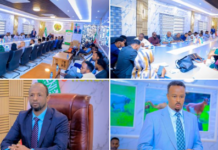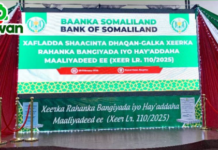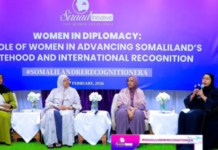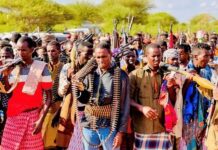Hargeisa, Somaliland – In a strategic move to enhance food security and climate resilience, the Somaliland Institute of Agricultural Research (SIAR) is forging global partnerships to scale up dryland rice cultivation across the region.
“Rice has become a staple food in Somaliland,” said the Deputy Director of SIAR. “To reduce our dependency on imports, local production must be prioritized.”
Building Climate-Resilient Farming Systems
SIAR is aligning its research and development efforts with climate-smart agricultural strategies. Central to its initiative is the development and dissemination of short-duration, drought-tolerant rice varieties tailored to Somaliland’s arid and semi-arid environments.
“The rice varieties we’re targeting must be resilient to our harsh climate,” explained the Executive Director of SIAR. “They need to mature quickly and thrive with minimal rainfall.”
Strengthening Strategic Collaborations
SIAR’s work is part of a broader regional and international push to introduce resilient rice varieties adapted to rainfed systems in East Africa. These climate-smart agricultural initiatives are designed to enhance seed systems, strengthen smallholder resilience, and increase yields in non-irrigated areas.
Addressing Key Challenges
Despite progress, significant challenges remain. Farmers continue to grapple with limited irrigation infrastructure, unpredictable rainfall, and inadequate access to high-quality seed varieties. SIAR is actively working to close these gaps through:
- Expanding field research and variety trials
- Delivering targeted training for farmers
- Advocating for enabling agricultural policies and investments
“This isn’t just about rice,” added the Deputy Director. “It’s about food sovereignty. Strengthening local rice production is essential for reducing economic vulnerability and ensuring our people have access to affordable, nutritious food.”
Why Dryland Rice Matters
- Food Security: Somaliland relies heavily on rice imports. Local production can reduce costs and stabilize the national supply.
- Climate Adaptation: Dryland rice requires significantly less water than traditional paddy systems—making it ideal for drought-prone areas.
- Regional Integration: By engaging with initiatives like the East African Community (EAC) Rice Platform, Somaliland can access shared knowledge, resources, and innovation.
A Vision for the Future
With robust international collaboration and a clear strategic vision, SIAR’s dryland rice program represents a vital step forward for Somaliland’s agricultural development. As climate change continues to reshape farming systems across Africa, investing in adaptive crops like dryland rice is not just a solution—it’s a necessity for long-term food security, economic resilience, and rural livelihoods.
Abdirahman Ibrahim Abdilahi






































